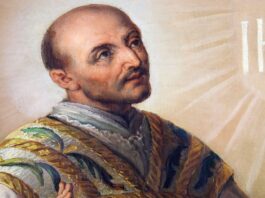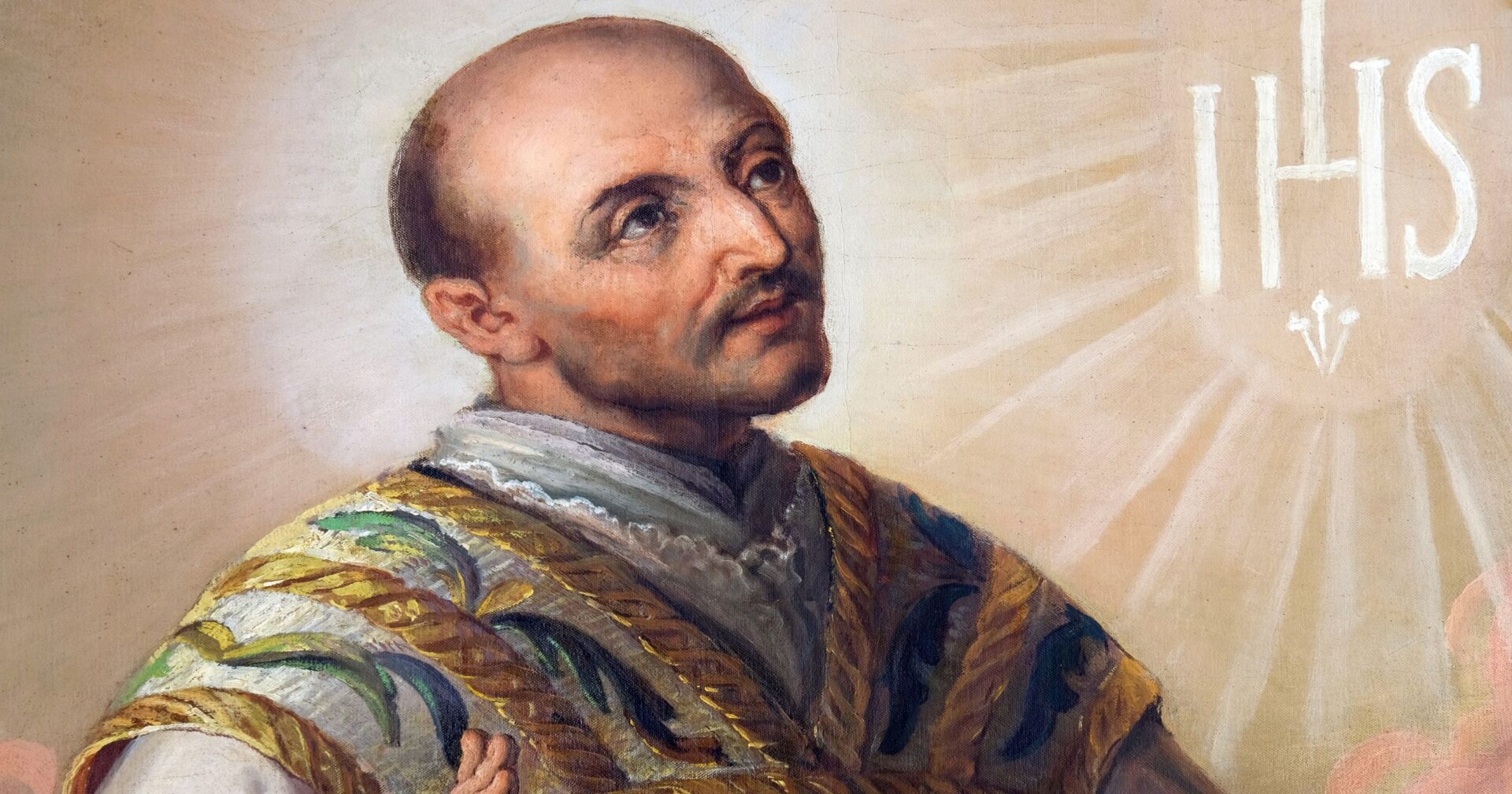
Saint Ignatius of Loyola, whose birth name was Íñigo Oñaz López de Loyola, was born into nobility and spent his early years in a prominent courtier’s household. In 1517, he made a shift from court life to the military. While recovering from a severe injury in 1521, he experienced a religious conversion after reading a biography of Jesus.
Following this transformation, Ignatius traveled to Montserrat for confession and absolution, then moved on to Manresa. In 1523, he attempted a journey to the Holy Land but was barred from entering Palestine. This setback led him to decide on pursuing an education.
Between 1524 and 1528, he studied at Barcelona, Alcalá, and Salamanca. His time in Alcalá and Salamanca included brief imprisonments due to suspicions raised by the Inquisition. His studies concluded in Paris. Rather than excelling in academics, Ignatius proved to be a spiritual guide. Despite further inquiries by the Inquisition, he was absolved of any wrongdoings.
Together with six others, including St. Francis Xavier and Diego Lainez, Ignatius pledged vows of poverty and chastity. This group would become the core of the Jesuits. Initially, they aimed to live in Christ’s footsteps in the Holy Land, seeking to convert Muslims. But the outbreak of the Turkish wars redirected them to Rome. Once in Rome, they were ordained in 1537 and commenced work under the pope’s direction in 1538.
In 1539, Ignatius outlined a new order’s formula, securing papal approval for it in 1540. This formula would later underpin the Jesuits’ governance Constitutions, published posthumously. In 1541, Ignatius was chosen as the order’s general, leading it from Rome until his passing. Despite the Jesuits playing a crucial role in the Counter Reformation, it was not their primary objective. Ignatius seemed more invested in foreign missions and youth education. During his life, numerous schools were established in Europe, and missions started in Japan, India, and Brazil.
Ignatius was driven by a lifelong wish to emulate Christ. His book, the “Spiritual Exercises”, written over many years, contains a range of reflections, conscience examinations, and prayers. These are organized into four stages towards achieving mystical union with God. The spirituality associated with Ignatius highlights the importance of human initiative. His book is a highly valued resource in Christian mysticism and continues to be a go-to guide for devout Catholics. His “soldier of Christ” idea, often perceived as overly militaristic, is more accurately an echo of St. Paul’s words in Ephesians 6:10-17. Ignatius’s final resting place is the Gesù in Rome. He was canonized in 1622.
Editorial credit: Zvonimir Atletic / Shutterstock.com
The post Saint Ignatius Loyola, Founder of the Jesuits appeared first on uCatholic.
Daily Reading
Monday after Epiphany
Reading 1 1 John 3:22–4:6 Beloved: We receive from him whatever we ask, because we keep his commandments and do what pleases him. And his commandment is this: we should…
Daily Meditation
The BribeEl soborno
Click here for daily readings It is a little strange being a parent of two little boys. There are so many moments that I look back and remember myself as…




